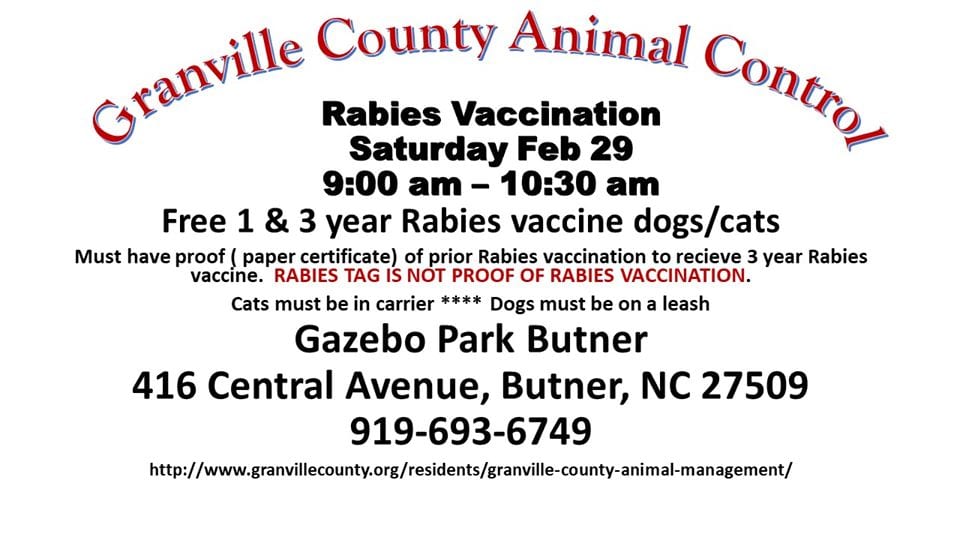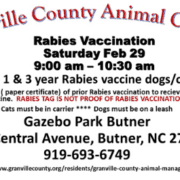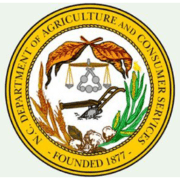Reminder: Granville Co. Animal Control to Offer Free Rabies Vaccines
100.1 FM / 1450 AM WIZS; Local News broadcasts M-F 8am, 12pm, 5pm
-Press Release, Granville County Government
Granville County Animal Control will be offering free rabies vaccines for dogs and cats on Saturday, February 29, 2020. From 9 until 10:30 a.m., residents can bring their pets to Gazebo Park in Butner for one and three-year vaccinations.
North Carolina rabies law (NCGS 130A-185) requires that all owned dogs, cats and ferrets be vaccinated against rabies by four months of age and that rabies vaccinations be kept current.
On Feb. 29, one-year vaccinations will be available for all dogs and cats over this age requirement. Pet owners must bring proof of prior rabies vaccination to receive the three-year option. Accepted proof of vaccination is the paper certificate provided by the pet’s veterinarian when the shot was administered. A rabies tag will not be accepted as proof.
Granville County Animal Control offers a reminder that all cats must be in a carrier and all dogs must be leashed to receive this free service. Vaccinations will be administered on a first-come, first-served basis.
Gazebo Park is located at 416 Central Avenue in Butner. With questions, please contact the Granville County Animal Shelter at 919-693-6749.



